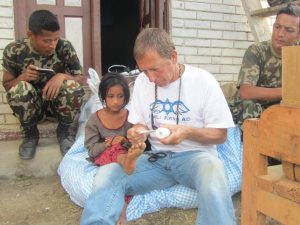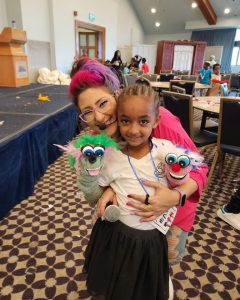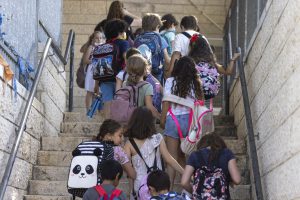Peace, Justice and Strong Institutions


Home » Peace, Justice and Strong Institutions » SDG 16 – United Together
SDG 16 – United Together
Israel’s Social Equality Minister couldn’t have been clearer: “The Arab population has shown much solidarity and responsibility.”
We’ve written extensively here about the country’s very concrete efforts to close gaps and foster a sense of belonging among its Arab citizens. While significant progress has been made, such strides face the ultimate test of resilience during periods of tension.
Like now.
Perhaps the best example that the glue is holding came from a group of Muslim Bedouin soldiers in the Israel Defense Forces (IDF), seen here on their way to the front by military helicopter singing in their native Arabic about the upcoming victory over Hamas. And it’s not just Bedouin soldiers that are all in. A resident of a major Bedouin town illustrated that quite well when he saved more than 30 young people targeted by Hamas. Another example: a Bedouin doctor who lived to tell about how he was abducted and shot twice by a terrorist, later on showed a reporter during a media interview pictures of Israeli Muslim women in traditional dress who were murdered by Hamas.
At the grassroots level, Bedouins throughout the country have been actively demonstrating solidarity with Israel, from collecting necessities to offering free accommodations for those in the conflict area.
These expressions of belonging should come as no surprise: according to reports, since the start of the war dozens of Israeli Bedouin are dead and missing at the hands of Hamas (the terrorizing of one of the Bedouin dead was documented in this Dashcam footage). Against the backdrop of all this trauma, a special crisis center has been set up (Hebrew) in the Bedouin south by Arab municipalities and civil society organizations to assist with mental stress, help locate missing persons and reinforce safety – including by adding desperately needed shelters (by law the responsibility of local councils, not the military).


The minority community of Druze, who like the Bedouin serve in the IDF, has also been active in backing Israel’s response – including with acts of marked heroism. Furthermore, Druze volunteers have been busy from the start with food drives and other expressions of support.
Israel’s Arab community, too, has been contributing – particularly doctors, an integral part of life-saving efforts in hospitals. In a moving testimony (Hebrew) one such doctor told of how at the start of the war he worked another 36 hours after the conclusion of his regular 10-hour shift. As for his being an Arab Israeli in a war situation, he said: “I just want to help.”
Unfortunately, the community has also been victimized by Hamas; the tragic cases include an ambulance driver murdered while working with medical teams; a taxi driver shot while rescuing young people; and another man who was killed by a rocket that fell near a local mosque. Arab towns – including Nazareth (Arabic) and Jaljulia (Hebrew) – have come under Hamas rocket fire.
Beyond the acts of solidarity among soldiers, doctors and volunteers, another vital expression of unity has emerged: Israel’s Arabs and Jews are joining together to reinforce shared existence in their neighborhoods.
We’ll end with a truly moving statement made live on-air by a popular Arab-Israeli TV news anchor (married to an Israeli Jew):
“We, the citizens of the state of Israel; all of us – left and right, secular and religious; Jews, Christians, Druze, Muslims, minorities; and immigrants from all over the world: stand united together in this fight.”


Related articles


SDG 16-Risking Lives to Save Lives – Israel Flying Aid
Peace, Justice and Strong Institutions Gal Lusky is an Israeli mom with a full-time job out of the home. That is one way of describing


SDG 16 – Triumph of Diversity
Peace, Justice and Strong Institutions From afar, the war that Hamas launched against Israel can seem like a blur. Come closer and you’ll see the


SDG 16-Will Israel’s New Budget Advance SDGs? – Part 1
Peace, Justice and Strong Institutions Read Part 2 A month after the Israel government adopted its first budget in three years, this past week the


















